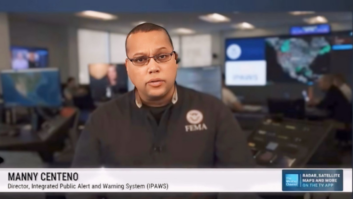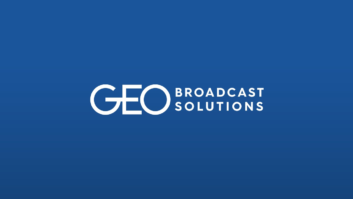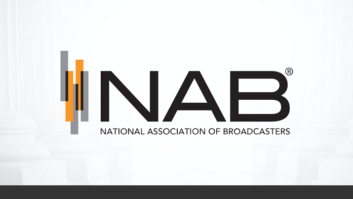 Text has been updated to clarify that the FCC applications described below are to build new boosters, a first step in a process. An applicant for geotargeting must apply separately for the actual experimental authorization to originate programming.
Text has been updated to clarify that the FCC applications described below are to build new boosters, a first step in a process. An applicant for geotargeting must apply separately for the actual experimental authorization to originate programming.
Four U.S. radio broadcasters — in Mississippi, Utah and Nevada — have filed applications with the FCC to build boosters with the intention of deploying ZoneCasting technology from GeoBroadcast Solutions for geotargeting.
The commission recently approved the use of FM boosters to originate programming for three minutes per hour. That opened the door for stations to begin using the GBS system.
GBS believes geotargeting can “revolutionize the broadcasting landscape” by allowing FM stations to offer “hyper-local content delivery.” Critics believe it may cause interference and listener confusion and that it may drive radio ad revenue down.
“The initial group of launch stations showcases the broad appeal and versatility of ZoneCasting, illustrating its potential to serve varied markets, including Spanish-language stations, African American-owned stations, and stations in diverse geographical locations,” GBS said in a release.
“Each broadcaster is eager to leverage this technology to better serve their unique audiences with localized news, emergency alerts, public service announcements and advertisements.”
Until final rules can be put in place, the FCC will allow booster stations to originate programming under one-year, renewable experimental authorizations. It has instructed its Media Bureau to give applications expedited treatment, saying it plans to monitor the rollout of the technology.
The initial applicants are:
- WRBJ-FM 97.7 in Jackson, Miss., an urban format station owned by Roberts Broadcasting that participated in testing of the technology. “The station will utilize ZoneCasting to offer affordable advertising rates to smaller, minority-owned businesses and provide targeted content for Jackson State University,” GBS wrote. Station founder Steve Roberts was quoted: “It will allow us to provide more targeted and relevant programming, while also creating new advertising opportunities for local businesses.”
- KLCY(FM) 105.5 in Vernal, Utah, a country station owned by Ashley Communications. GBS said the station area includes a large Ute Reservation and that it plans to use ZoneCasting to deliver content specific to the reservation, “supported by strong community interest and funding from Ute leadership.”
- KADD(FM) 93.5 in Las Vegas is operated by Radio Activo. It will target high-density Hispanic areas in Las Vegas and Washington County, Utah.
- KKFT(FM) 99.1 and KRFN(FM) 100.9 in Reno, Nev., owned by Evans Broadcast, “will create targeted content zones for Carson City and Lake Tahoe, focusing on the distinct needs of Nevada’s capital and the vacation destination community.”
Those stations have applied for new boosters, a necessary first step. Once built, they then would apply for experimental authorization to originate programming.






